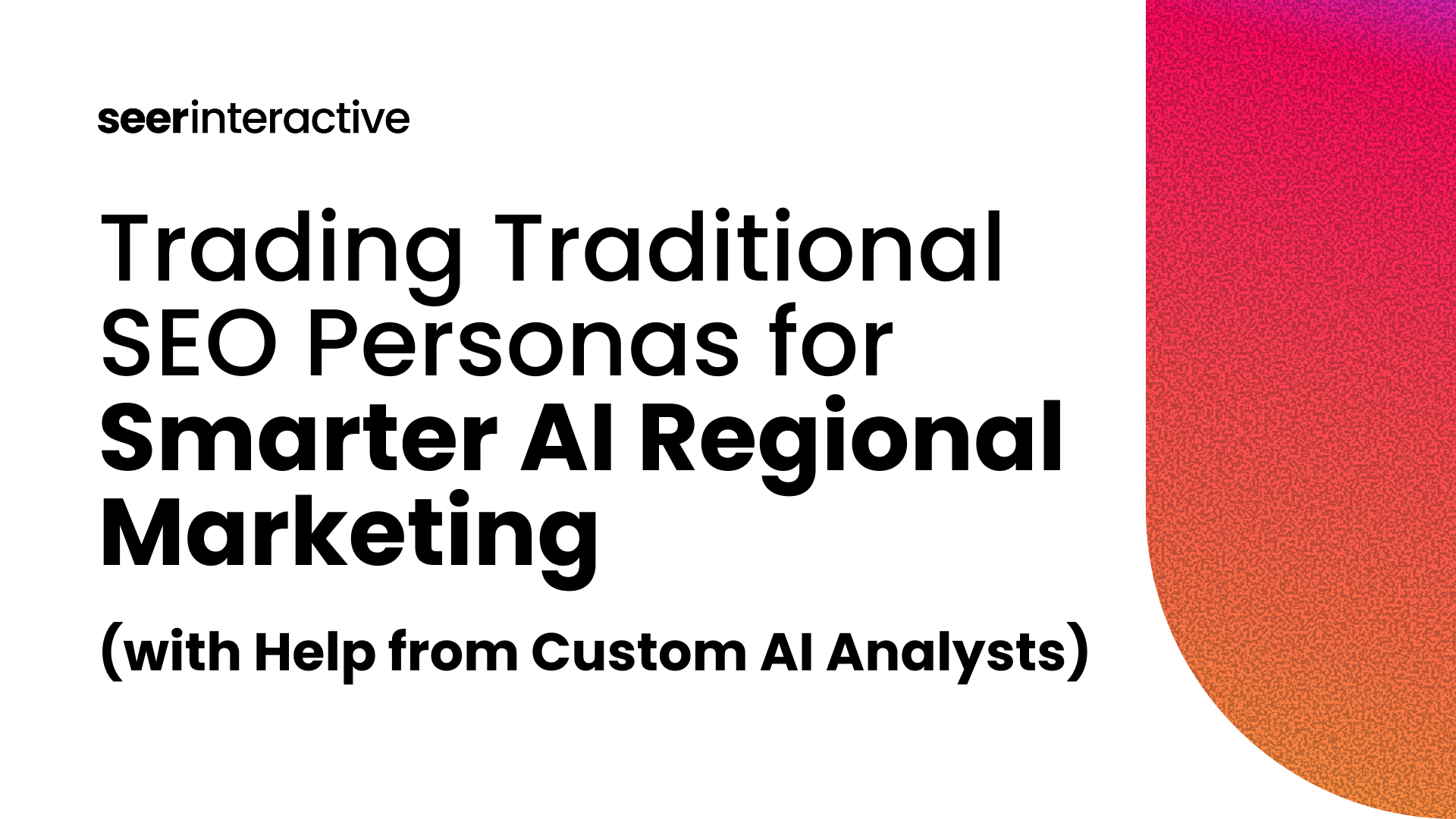Pharmaceuticals and healthcare. Financial services. Alcohol and tobacco. Insurance.
What do all of these industries have in common?
They are highly regulated. Which means that they have to be very, very careful with their messaging and marketing strategies. If they make one small slip, that failure to comply with regulation could result in fines, lawsuits, and/or a PR nightmare.
So, when you’re working on an SEO strategy for a brand in a highly-regulated industry, you face a lot of unique challenges. Some are to be expected, like how everything will take longer because it needs to go through rounds of review. Some are surprising, like finding out your client is not, under any circumstances, allowed to use what you’d consider a very important keyword anywhere on their marketing materials.
By the way, I’m not making that up. It happens more than you’d think. Imagine that your client had a business selling masks that looked like horse heads but said to you “Yeah no, we’re not allowed to use the term ‘horse head masks’ anywhere on our site or we’ll be fined $25k.”
Yes, it happens. And it’s definitely a challenge. But by being prepared, dedicated, persuasive, and cooperative, you can still manage a successful SEO campaign, even when working within very strict parameters.
If you’re working on your first firmly regulated industry site, here’s how I’d recommend you go about it:
Educate yourself up front
If your client is in a regulated industry, learn everything that you can as soon as possible.. At your kickoff meeting, ask the following questions:
- What exactly is [brand’s] compliance process? How many people need to review and approve content or a strategy? How long does it take?
- Can you provide examples of content and/or strategies that have been approved by compliance, and explain why they were approved? What about examples that weren’t approved?
- Are there any keywords or phrases that can’t be used in the content or linkbuilding strategy?
Educate yourself on the industry in general as well. For example, if your client is a prescription drug, check out the FDA’s Office of Prescription Drug Promotion (OPDP) guidelines. If you’re not sure where to look for this information, your client should be able to provide you with all of the information you’d need.
You’ll avoid a lot of wasted time if you know the brand’s legal limitations and industry regulations before you begin creating your SEO strategy.
Be Patient
As I said above, when content and strategies have to go through legal review, things take longer to process on the client’s end. Be patient, and be sure to build the review time into your project schedule.
Start with the low-hanging fruit
When you start out, your client might be reluctant to hit the ground running with a brand-new content strategy and linking plan, so start with some easy wins. Make sure the site is architecturally sound (technical recommendations don’t usually have to go through legal review). Use Google Analytics to find high-converting keywords that are already being used on the site and be sure the site content is optimized for them (if the keywords are already there, they’ve already passed compliance). And when it comes to link building, start off with link reclamation and unlinked mentions.
Use the competition
Rules are rules, but I’ve learned that different brands interpret and follow the rules in different ways. Certain brands and compliance teams follow basic rules but aren’t afraid to take some risks, while others are incredibly conservative and cautious.
If your client is on the conservative side and tends to shy away from anything that might not make it through compliance, try showing them what one of their more adventurous competitors in the same industry is doing. If they see that another brand got an asset through compliance, and it’s performing well, they may be more open to trying something in the same vein.
Educate the compliance team
Once the low-hanging fruit and competitive analysis have shown some results, your client will have a lot of faith in you and your team’s SEO abilities, and you can start pitching some bold new content and link strategies.
That’s when you have to build a strong relationship with the compliance team. I’ve often pitched strategies to my clients only to hear them say something like “I love this idea but it’ll never make it through legal.” In this case, instead of shrugging and going back to the drawing board, see if your client can set up a meeting between your SEO team, the marketing team, and compliance.
Legal teams often know next to nothing about SEO, so give them a brief SEO 101 lesson, and explain to them how these recommendations can help the brand attain their goals (I always like to use Jamie’s method of building an SEO business case to help with this). Find out if you can sit in on the compliance review sessions so that you can actually defend your strategy as the team is reviewing it. You may end up having to compromise, but a compromise is way better than a flat refusal on their end.
Use it as a learning experience
If nothing else, running an SEO campaign for a heavily-regulated industry will help you learn to be nimble and flexible, how to pivot strategies, defend your decisions, and face challenges. So, use it as a learning experience. Because if you can attain your client’s goals within their strict legal parameters, then you can pretty much do anything!
Have you worked on an SEO project in a regulated industry? Do you have any tips or advice to add?



